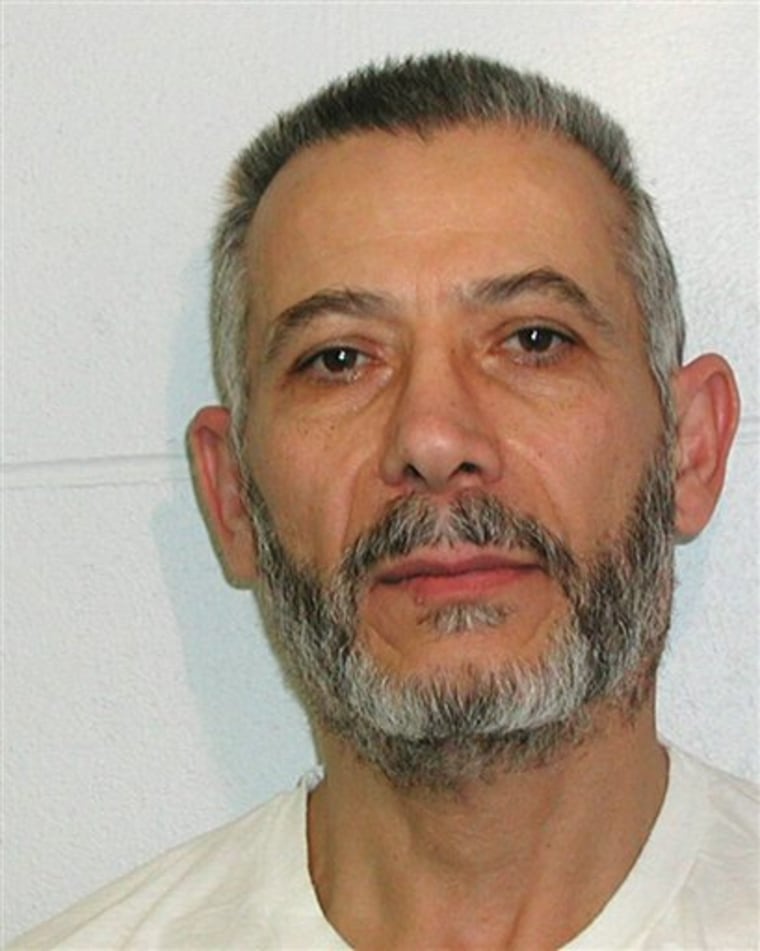In 1980, a PLO official identified as "Abu Walid al-Iraqi" narrowly escaped an assassination attempt in which someone fired a rocket at his Italian sedan in the lawless streets of Beirut.
Nearly three decades later, The Associated Press has learned the true identity of that lucky man: Khalid Al-Jawary, the Black September terrorist who would later serve 16 years for planting car bombs in New York City.
CIA investigative notes obtained by the AP reveal Abu Walid al-Iraqi was the nom de guerre of Al-Jawary, who is slated to be released by federal authorities this month. His impending release and new details about his violent past uncovered in an AP investigation have outraged people who believe he should not be set free.
Al-Jawary, 63, was convicted in 1993 of placing two bomb-rigged cars on Fifth Avenue in Manhattan and a third at JFK's El-Al cargo terminal. The bombs were set to explode at noon on March 4, 1973 — the day Israeli Prime Minister Golda Meir was scheduled to arrive in New York.
Bombs failed to detonate
The National Security Agency intercepted a message that helped reveal the location of the bombs, which had failed to detonate.
But another attack did result in an explosion — and this time, Al-Jawary was a target, not a bomber.
Lebanese newspapers, along with the clandestine PLO-owned radio station known as the Voice of Palestine, reported that an attempt to kill "Abu Walid al-Iraqi" in Beirut had failed on Oct. 25, 1980.
The radio report blamed the hit on "suspect forces known for their connections with the Zionist enemy," as it called Israel. "As a result of the treacherous attack, two aides were wounded, one of them seriously; Brother Abu al-Walid escaped unhurt."
It's not clear if Mossad, Israel's foreign intelligence service, was indeed behind the hit in which someone fired a rocket at Al-Jawary's white Fiat. A spokesman with the Israeli Embassy in Washington declined to comment.
Yehudit Barsky, the director of the American Jewish Committee's division on Middle East and International Terrorism, cautioned that the assertion of Mossad involvement in the hit could have been bogus, meant to bolster Al-Jawary's credentials in the PLO.
'Could be propaganda'
Surviving a purported Israeli assassination, she said, would have made him a hero in Palestinian circles.
"That's the part of this that could be propaganda," Barsky said.
The PLO radio report also noted "al-Iraqi" was in charge of the technical section of the "Unified Security Organization."
Former intelligence officials say Salah Khalaf, better known as Abu Iyad, headed the Unified Security Organization. Iyad was a top commander in Fatah, the PLO's military wing. Al-Jawary, who lived in Beirut at the time of the attempted assassination, was Iyad's aide for many years.
Iyad was killed in Tunisia by a rival Palestinian faction in 1991. Al-Jawary was apprehended passing through Rome in January 1991 to attend Iyad's funeral.
Iyad was part of a cadre of Black September terrorists that Israel believed carried out the murders of 11 Israeli athletes at the Munich Olympics in 1972.
Assassination attempt by rival group?
Former U.S. intelligence officials who operated in Beirut in the 1980s said Mossad agents could have directly tried to kill Al-Jawary like they did with Black September terrorist Ali Hassan Salameh or hired another group to do the job.
There's also the possibility that a rival Palestinian group tried to kill Al-Jawary.
"That's a murky world he lived in," said Mike Finnegan, the former FBI counterterrorism agent who tracked down Al-Jawary. Al-Jawary once told Finnegan that Mossad had tried to kill him.
Al-Jawary is scheduled to be released Feb. 19 after serving about half of a 30-year sentence in maximum security prisons. He claims he had nothing to do with the attempted attack in 1973.
